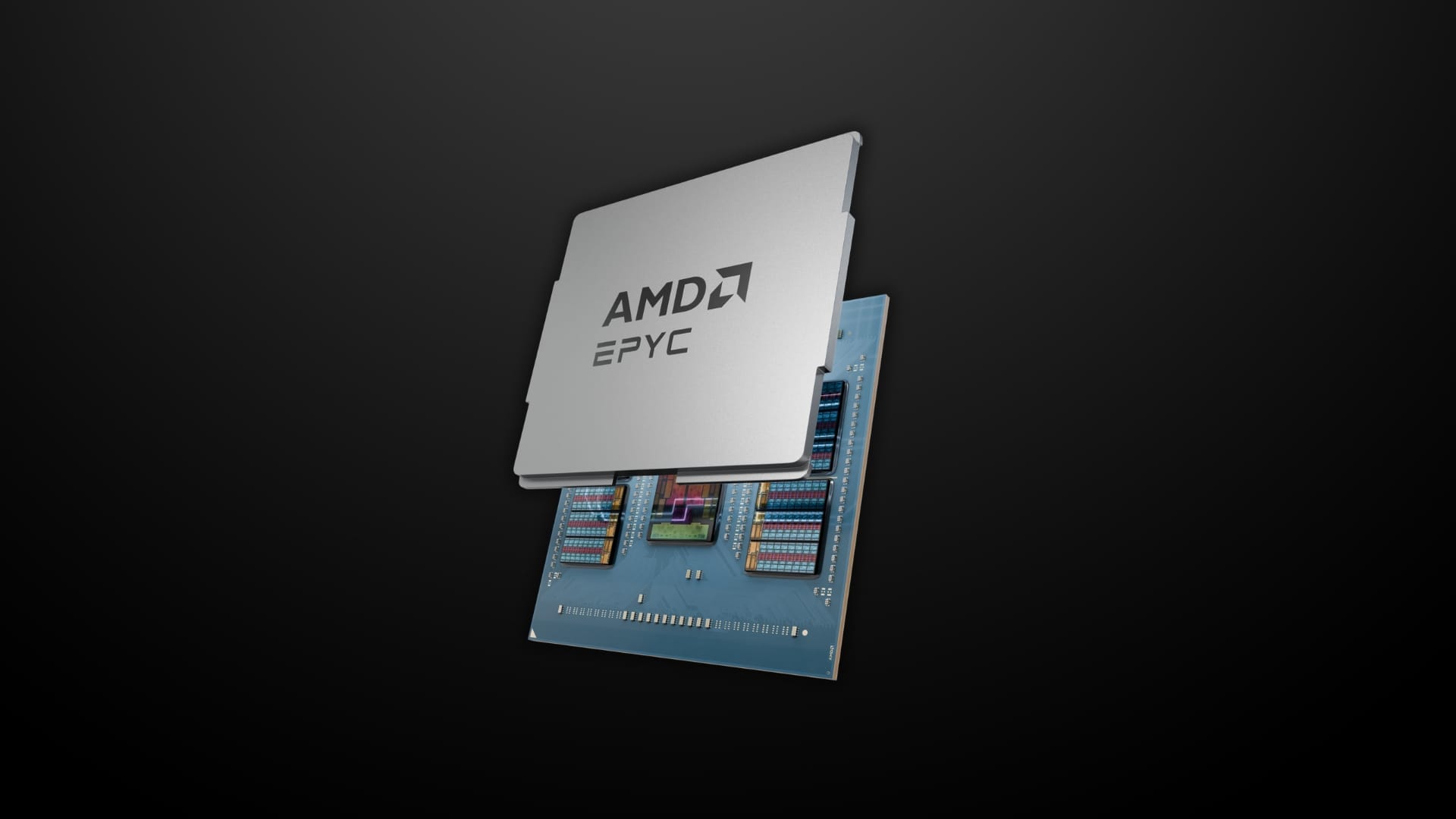AMD launches 5th Gen EPYC CPUs for data centres
AMD's 5th Gen EPYC processors offer record-breaking performance for data centres, AI, and cloud workloads, with up to 192 cores and advanced AI capabilities.

AMD has announced the launch of its 5th Generation EPYC processors, previously known as “Turin,” with a focus on boosting performance and energy efficiency for data centres. These new CPUs are designed for a wide range of applications, including enterprise computing, AI, and cloud infrastructure. With core counts ranging from 8 to 192, the AMD EPYC 9005 series continues to build on AMD’s reputation for delivering record-breaking performance and energy efficiency in modern data centres.
Table Of Content
Enhanced performance and efficiency
The 5th Gen AMD EPYC processors are built on the “Zen 5” core architecture and offer up to 2.7 times the performance of competing products. A key new addition to the series is the 64-core AMD EPYC 9575F, which has been specifically developed to handle GPU-powered AI solutions. The EPYC 9575F processor reaches boost speeds of up to 5GHz, compared to 3.8GHz in competitor processors, allowing it to deliver 28% faster data processing. This improvement is critical in ensuring that GPUs are continuously fed with data for demanding AI workloads.
Dan McNamara, Senior Vice President and General Manager of AMD’s server business, emphasised the company’s commitment to delivering high-performance and energy-efficient solutions. He stated, “From powering the world’s fastest supercomputers to leading enterprises and Hyperscalers, AMD has earned the trust of customers who value demonstrated performance, innovation, and energy efficiency.”
Broad support for diverse workloads
AMD’s latest EPYC processors cater to a wide range of workloads, from large-scale cloud infrastructures to AI initiatives. The “Zen 5” architecture offers up to 17% better instructions per clock (IPC) for enterprise and cloud workloads, and up to 37% higher IPC for AI and high-performance computing tasks. This increase in performance helps customers achieve faster time-to-results, particularly for workloads like video transcoding, scientific applications, and virtualised infrastructure.
For example, servers based on AMD EPYC 9965 processors deliver up to four times faster results for business applications such as video transcoding, compared to Intel Xeon-based servers. Additionally, AMD claims that these servers provide up to 3.9 times faster insights for scientific and high-performance computing applications, making them ideal for solving complex problems in these fields.
When it comes to virtualisation, AMD EPYC 9005 series CPUs offer up to 1.6 times better performance per core, helping companies improve their infrastructure efficiency.
AI and future-proofing data centres
AI workloads are a key focus for the new AMD EPYC processors, with the 192-core EPYC 9965 delivering up to 3.7 times the performance on end-to-end AI workloads compared to the competition. In smaller enterprise-class AI models, such as Meta’s Llama 3.1-8B, AMD’s EPYC 9965 delivers up to 1.9 times the throughput performance.
For those requiring even more specialised AI solutions, the 64-core AMD EPYC 9575F excels in feeding data to AI clusters, allowing for up to 700,000 more inference tokens per second, significantly speeding up AI processing tasks. This level of performance can help companies accomplish more in less time, positioning AMD’s CPUs as a leading choice for AI-driven data centres.
Moreover, customers adopting the 5th Gen AMD EPYC CPUs can expect a substantial reduction in power consumption and server requirements. AMD highlights that these processors can help achieve 71% less power usage and require 87% fewer servers, giving businesses flexibility in how they allocate their IT resources. This helps to modernise data centres, making them more efficient and better suited to handle AI, cloud, and enterprise tasks.
Broad industry support
The entire line-up of 5th Gen AMD EPYC processors is available now, with support from major industry players such as Cisco, Dell, Hewlett Packard Enterprise, Lenovo, and Supermicro. All major original design manufacturers (ODMs) and cloud service providers are also on board, offering organisations a seamless upgrade path for enhanced compute and AI capabilities.
Key features of the AMD EPYC 9005 series include leadership core counts from 8 to 192 cores per CPU, the “Zen 5” and “Zen 5c” core architectures, 12 channels of DDR5 memory per CPU, and support for memory speeds up to DDR5-6400. Additionally, the processors support AVX-512, enabling improved data processing speeds, and offer trusted I/O for confidential computing, with FIPS certification in progress for the entire series.
With the launch of the 5th Gen AMD EPYC processors, AMD continues to push the boundaries of server CPU technology, helping businesses achieve better performance and efficiency in their data centres.
















